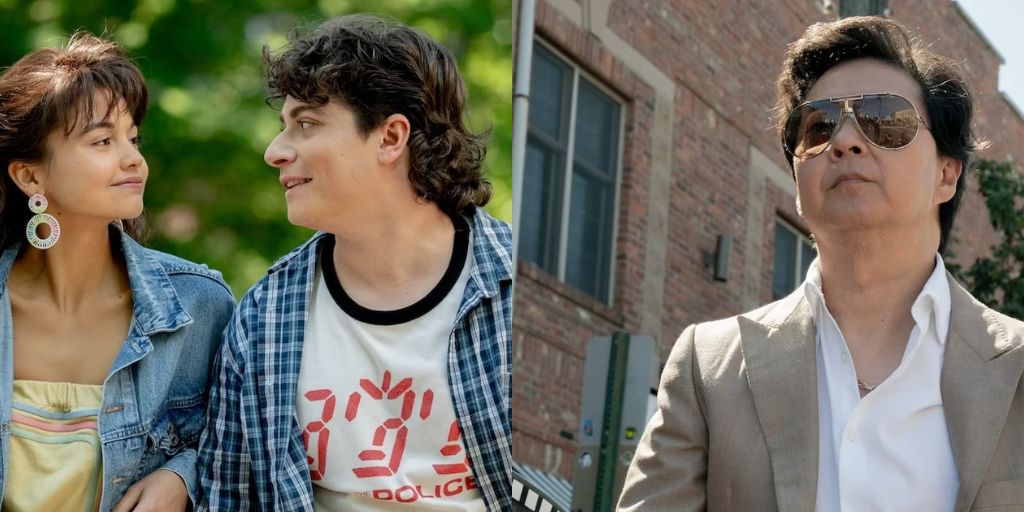Kevin Smith has been looking into his past for the last few years. Smith has often revisited his favorite characters in his films, and his stories are filled with discussions about entertainment from years ago.
Since his heart attack in 2018, Smith has become even more reflective about his life.
This shift is also seen in his films. In the 2019 film Jay and Silent Bob Reboot, Smith addressed the importance of fatherhood by giving the character Jay (played by Jason Mewes) an estranged daughter (played by Smith’s own daughter, Harley Quinn Smith).
The film also seemed to make Smith rethink his work on stories like Chasing Amy. In his 2022 movie Clerks III, Smith returned to the characters he began his career with, having Randal (Jeff Anderson) and Dante (Brian O’Halloran) create a film at the Quick Stop.
The movie also shows these characters dealing with heart attacks. After a series of strange horror films, it was refreshing to see Smith return to personal stories again.
Smith’s latest film, The 4:30 Movie, feels like his most personal movie since Clerks. It’s a teen movie about spending time with friends at the movies, dealing with friendships, and thinking about a girl you never asked out.
If Smith’s childhood was anything like what we see in this one day of a 1986 New Jersey summer, it’s clear how he became the person he is today and made the films he has.
Smith is at his best when he’s open with his emotions, as he is in The 4:30 Movie. The movie’s sincerity attempts to address the common issues found in Smith’s films, with mixed results.
What Is The 4:30 Movie About?
In The 4:30 Movie, Austin Zajur plays Brian David, a 16-year-old who spends his days sneaking into movies at his local theater and recording his thoughts in a tape recorder as a writing exercise.
His friends, Burny (Nicholas Cirillo) and Belly (Reed Northrup), usually join him. Burny is the group’s ladies’ man, while Belly is often getting into trouble.
Brian David surprises his friends when he invites his long-time crush, Melody Barnegat (Siena Agudong), to join them for a 4:30 movie. Brian and Melody had a brief connection the previous summer, but it took Brian this long to work up the courage to ask her out.
When she agrees, Brian has to figure out how to sneak them into an R-rated movie, avoid the angry theater owner, Manager Mike (a scene-stealing Ken Jeong), and deal with his friends’ frustrations over how this new girl is changing their friendship.
Smith’s films often make small, low-stakes situations seem important to his characters, which fits well with this straightforward teen comedy.
The movie begins with Brian David awkwardly asking Melody out over the phone.
The scene feels clumsy, cheesy, and sincere, like it’s based on a real experience from Smith’s youth. When Melody agrees to go out, Brian’s joy is clear, setting the tone for the film, which has a lot of heart.
Kevin Smith’s Usual Issues in The 4:30 Movie
When the friends arrive at the multiplex, Smith’s usual quirks begin to surface. The friends crack jokes that don’t always land, including a recurring gag where characters say things that will obviously be wrong in the future, like saying post-credit scenes are a thing of the past or that Bill Cosby will always be respected.
The theater is filled with single-scene cameos, which are entertaining at times but seem to be there to fill the movie’s short runtime, which is barely 76 minutes. Smith also includes fake movie trailers that rely on his usual crude humor.
One of the more interesting trailers is a simple horror trailer that doesn’t lean on Smith’s typical jokes and feels like a nod to his horror film past.
There’s also a fake movie within the movie, with clips from Astro Blasters and the Beaver Men, a Flash Gordon parody starring Diedrich Bader and Logic.
While these moments are somewhat amusing, they make it seem like Smith didn’t have enough material for a full movie.

In this middle section of the film, Smith’s common flaws become more apparent. As mentioned before, The 4:30 Movie is very short, but it still feels longer than it should.
Smith lets certain jokes drag on too long, and scenes seem unsure when to end. The writing doesn’t have the energy it needs, and the simple story is pushed aside in favor of cameos, fake movies, and random jokes that don’t hit the mark.
It’s as if Smith feels the need to add elements his fans expect rather than sticking to what serves the story best.
Smith has struggled with this kind of self-referential filmmaking for a while. As the writer, director, and editor, Smith has complete creative control, which allows him to cater to an audience he knows will support his work.
It’s impressive that a filmmaker can still make exactly the movie they want, but The 4:30 Movie shows signs of Smith trying something new, only to fall back into the patterns he thinks his audience expects, for better or worse.
The 4:30 Movie Shines in Its Teen Romance
Once Brian David and Melody Barnegat go on their date and the other characters and jokes fade into the background, The 4:30 Movie regains the charm and youthful joy it started with.
This part of the movie shows a softer, more endearing side of Smith that he should embrace more often.
Zajur and Agudong are delightful together, capturing a version of young love built on genuine admiration for each other.
Zajur’s love of movies is charming and offers a view of what Smith might have been like as a teen, unsure of his future but passionate about film.
Agudong avoids being just the object of Brian’s affection and instead shows that she truly cares for this quirky movie nerd who was too shy to express his feelings.
The movie finds its heart again in the third act, making you wonder if a simple, honest romantic comedy is something Smith should consider making in the future.
One of the last credits in The 4:30 Movie is from Smith, saying, “The Director would also like to thank the Audience for giving him an extended adolescence.” This statement seems like a double-edged sword.
On one hand, the film is at its best when it keeps things simple, focusing on the emotions of young love and the self-discovery of teenage years.
On the other hand, Smith continues to play to his long-time audience, relying on juvenile humor that should have been left behind.
While The 4:30 Movie is a flawed but heartfelt teen comedy that feels rooted in real-life experiences, it stumbles when Smith inserts his usual gimmicks, distracting from the sweet story being told.
Kevin Smith’s latest film, The 4:30 Movie, reflects his fascination with his past, especially after his 2018 heart attack.
The film tells the story of a teen, Brian David, who invites his crush to a movie while showing friendships and awkwardness.
It’s a personal, heartfelt film but struggles with some of Smith’s usual issues, like jokes that don’t always land and unnecessary cameos.
The film shines when it focuses on the sweet teen romance between Brian and Melody, but it sometimes gets bogged down by old habits that detract from the story’s sincerity and emotional depth.




